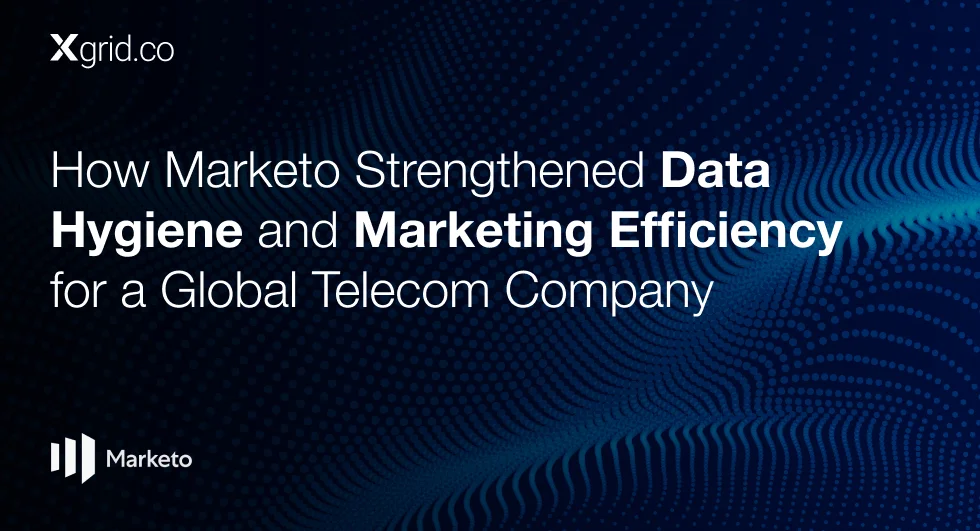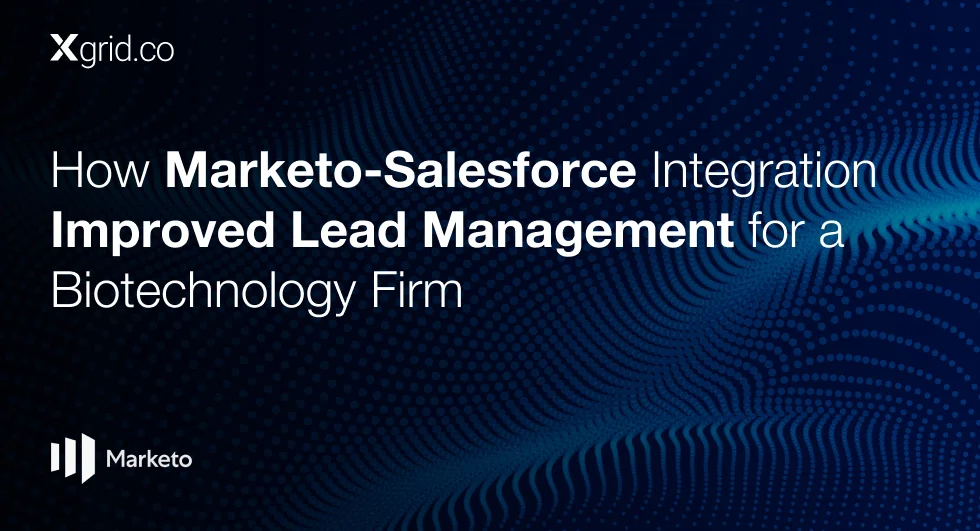Data Management in Marketo: Balancing Volume and Quality
Lauren Aquilino provides insights into how businesses can navigate these challenges.
The Struggle with Data Volume in Marketo
With years of experience in the marketing automation space, Lauren Aquilino has seen how companies using Marketo face increasing challenges in managing their data. “It doesn’t really make sense to put every single one of those records into Marketo…that would bog down the system quite a bit,” Lauren states, referencing the difficulties SaaS companies encounter when attempting to handle millions of user records within Marketo.
Marketo’s robust features allow marketers to manage and nurture leads efficiently, but it is not necessarily designed to handle massive datasets all on its own.
This constraint is becoming more apparent as businesses scale up and generate more customer data. The risk of overloading the platform with excessive records could lead to slower performance and processing delays, affecting marketing efforts.
Prioritizing Data Quality over Quantity
Lauren stresses the importance of focusing on data quality rather than trying to manage vast quantities of information within Marketo. “I’d rather you have no data than bad data because once that bad data is in there, how do you know if it’s bad or good?” she says, highlighting a crucial aspect of data management in marketing automation.
Marketo’s capabilities include powerful tools for managing data hygiene, but Lauren recommends implementing a proactive data governance plan. By archiving outdated records and focusing on keeping data clean and relevant, marketers can avoid clutter and maintain a streamlined database.
This approach ensures that Marketo remains efficient and that the data being used to drive campaigns is both accurate and actionable.
Supplementing Marketo with External Tools
Given the data volume limitations within Marketo, Lauren suggests that companies explore using supplementary tools like data warehouses.
Many organizations now move large-scale data processing and lead scoring outside of Marketo to more capable environments, only pushing necessary information back into the platform.
This strategy allows Marketo to play to its strengths, such as campaign automation and nurturing, without being bogged down by data processing tasks. Marketers can then focus on crafting targeted campaigns and personalized messaging using the most relevant data subsets.
Key Insight: While Marketo is a powerful tool for data-driven marketing, its optimal use requires balancing the data volume it handles, ensuring data quality, and utilizing external platforms for large-scale processing.
Conclusion
Marketo’s power lies in its ability to manage marketing data efficiently, but it is not meant to be a catch-all solution for massive data volumes. By prioritizing data quality, implementing a data governance plan, and supplementing Marketo with external tools for large-scale data processing, businesses can keep their marketing efforts focused and effective.
Downloads
Article (PDF-276 KB)MOST POPULAR INSIGHTS
- How Marketo Strengthened Data Hygiene and Marketing Efficiency for a Global Telecom Company
- How Marketo-Salesforce Integration Improved Lead Management for a Biotechnology Firm
- How a Tech Company Used Marketo to Refine ABM Strategies for Sales Engagement
- How Marketo Campaigns Were Streamlined with Templates and Tokens
- How Marketo Solidified Marketing Insights with Custom Attribution Models
Related Articles
Related Articles

Established in 2012, Xgrid has a history of delivering a wide range of intelligent and secure cloud infrastructure, user interface and user experience solutions. Our strength lies in our team and its ability to deliver end-to-end solutions using cutting edge technologies.
OFFICE ADDRESS
US Address:
Plug and Play Tech Center, 440 N Wolfe Rd, Sunnyvale, CA 94085
Pakistan Address:
Xgrid Solutions (Private) Limited, Bldg 96, GCC-11, Civic Center, Gulberg Greens, Islamabad
Xgrid Solutions (Pvt) Ltd, Daftarkhwan (One), Building #254/1, Sector G, Phase 5, DHA, Lahore




